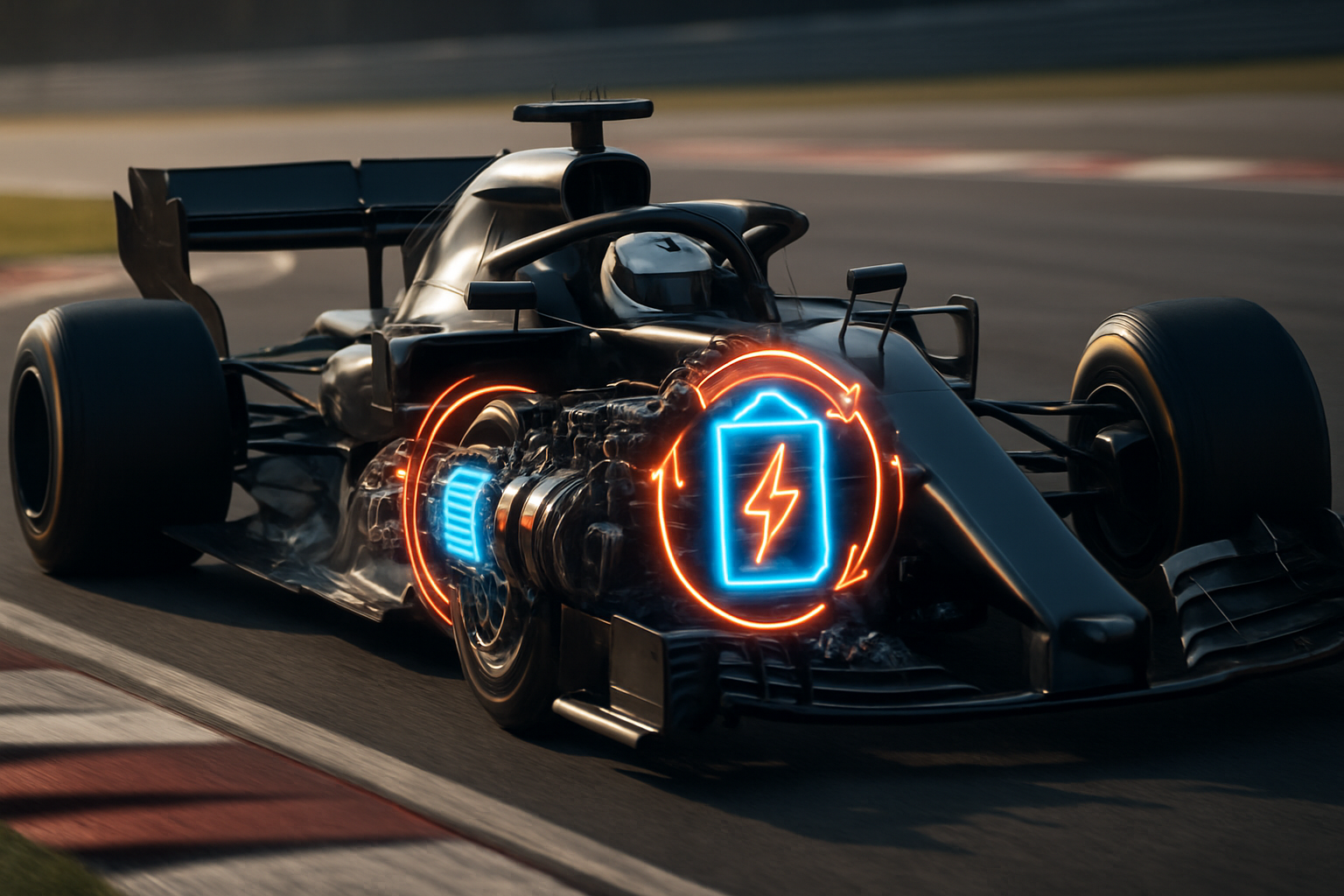Hydrogen-Powered Racing: The Future of Motorsports
Imagine the roar of engines replaced by a gentle hum, pit stops measured in seconds for refueling, and exhaust emissions consisting of pure water vapor. This isn't a scene from a sci-fi movie but a glimpse into the potential future of motorsports with hydrogen-powered racing. As the automotive world grapples with sustainability, hydrogen fuel cell technology is emerging as a promising solution that could revolutionize both street cars and the high-octane world of racing.

Breaking Down the Hydrogen Powertrain
At the heart of hydrogen-powered race cars lies the fuel cell stack. This marvel of engineering consists of multiple cells that convert hydrogen into electricity through an electrochemical process. The electricity then powers electric motors, providing instant torque and smooth acceleration. Unlike battery electric vehicles, hydrogen cars can be refueled in minutes, a crucial advantage in the fast-paced world of motorsports where every second counts.
Performance Potential of Hydrogen Race Cars
Skeptics might question whether hydrogen can match the raw power of traditional combustion engines, but early prototypes have shown promising results. Hydrogen powertrains offer several advantages, including a lower center of gravity due to the distribution of fuel cells and tanks, and the ability to precisely control power delivery to each wheel. This could potentially lead to better handling and cornering capabilities, fundamentally changing racing strategies and vehicle designs.
Challenges on the Track
While the potential of hydrogen racing is exciting, significant hurdles remain. Safety concerns around the storage and handling of hydrogen fuel need to be addressed, especially in the high-risk environment of motorsports. Additionally, the infrastructure for hydrogen production and distribution is still in its infancy, posing logistical challenges for race organizers and teams. However, these obstacles also present opportunities for innovation and could drive advancements that benefit the broader automotive industry.
Environmental Impact and Sustainability
Perhaps the most compelling argument for hydrogen racing is its potential environmental impact. With water vapor as the only emission, hydrogen-powered motorsports could dramatically reduce the carbon footprint of racing events. Moreover, if the hydrogen is produced using renewable energy sources, it creates a closed-loop system of sustainable racing. This aligns with the growing demand for eco-friendly entertainment and could help motorsports maintain relevance in an increasingly environmentally conscious world.
Technological Trickle-Down Effect
Historically, racing has been a testbed for automotive technologies that eventually make their way into consumer vehicles. Hydrogen racing could accelerate the development and refinement of fuel cell technology, making it more efficient, compact, and cost-effective. This could have far-reaching implications beyond the racetrack, potentially speeding up the adoption of hydrogen fuel cell vehicles in the mainstream automotive market.
Spectator Experience and Fan Engagement
The introduction of hydrogen technology to racing will undoubtedly change the sensory experience for spectators. The absence of engine noise and exhaust fumes will create a different atmosphere at race events. However, this opens up new possibilities for fan engagement, such as closer access to the action and innovative ways to showcase the technology behind the racing. The challenge for organizers will be to maintain the excitement and drama that fans expect from motorsports while highlighting the cutting-edge nature of hydrogen technology.
Global Initiatives and Competitions
Several racing series and organizations are already exploring hydrogen technology. The 24 Hours of Le Mans, one of the most prestigious endurance races in the world, has announced plans to introduce a hydrogen class by 2024. Other initiatives, such as the HYRAZE League concept, are proposing all-new racing formats built around hydrogen-powered vehicles. These efforts are not only pushing the boundaries of motorsport technology but also raising public awareness about the potential of hydrogen as a clean energy source.
The Road Ahead for Hydrogen Racing
The journey towards widespread adoption of hydrogen in motorsports is just beginning. As with any technological shift, there will be challenges, setbacks, and breakthroughs along the way. The success of hydrogen racing will depend on continued investment in research and development, collaboration between automotive manufacturers, energy companies, and racing organizations, and the willingness of fans to embrace a new era of motorsports.
In conclusion, hydrogen-powered racing represents a bold vision for the future of motorsports – one that combines high-performance competition with environmental responsibility. As the technology matures and infrastructure develops, we may soon witness a new golden age of racing, where the pursuit of speed goes hand in hand with the pursuit of sustainability. The race is on, not just on the track, but in laboratories and workshops around the world, to make this vision a reality.






